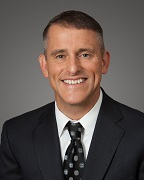AMARILLO, TX – Virtually every county in the United States has an elected District Attorney. The District Attorney hires Assistant District Attorneys. The Assistant District Attorneys prosecute individuals who are indicted for crimes defined by state criminal statutes: burglary, DUI, etc. By doing the math, one will quickly see that there is a large number of District Attorney Offices throughout the United States.
District Attorneys’ Offices are part of the state legal systems. Separate and apart from state legal systems, there is the federal legal system. The federal equivalent of a county District Attorney’s Office is the U.S. Attorney’s Office. There are approximately 93 U.S. Attorney’s Offices throughout the United States.
 While the local District Attorney is elected by the residents of the county, each U.S. Attorney is appointed by the President. And so there are currently approximately 93 Republican U.S. Attorneys (four years ago, there were approximately 93 Democrat U.S. Attorneys). The U.S. Attorney hires Assistant U.S. Attorneys (“AUSAs”). These are the federal equivalent of county Assistant District Attorneys. Normally, the AUSAs remain in the office if the White House changes political parties.
While the local District Attorney is elected by the residents of the county, each U.S. Attorney is appointed by the President. And so there are currently approximately 93 Republican U.S. Attorneys (four years ago, there were approximately 93 Democrat U.S. Attorneys). The U.S. Attorney hires Assistant U.S. Attorneys (“AUSAs”). These are the federal equivalent of county Assistant District Attorneys. Normally, the AUSAs remain in the office if the White House changes political parties.
In the larger U.S. Attorney’s Offices, there are criminal AUSAs and there are civil AUSAs. Criminal AUSAs prosecute criminal cases against persons for crimes defined by federal criminal statutes: crimes that cross state lines, bank fraud, health care fraud, etc. Civil AUSAs recover money against persons for violation of federal civil statutes (e.g., health care fraud statutes).
It is not uncommon for civil AUSAs to notify health care providers, including DME suppliers, that they are the target of a civil fraud investigation. Such notification can be in the form of a letter that says something like the following:
I write on behalf of the United States Department of Justice with regard to [name of DME supplier], hereafter referred to as “you.” The Department of Justice and the Office of Inspector General have been actively investigating [description of the DME supplier’s activities]. We would like to speak with you concerning the conditions under which you completed orders for [name of product] that Medicare and Medicaid ultimately covered and reimbursed. The United States Department of Justice is investigating these issues pursuant to the federal False Claims Act. The False Claims Act permits the United States to recover treble damages for false claims made to Medicare and/or Medicaid. In addition, the United States may recover penalties of between $11,665 and $23,331 per claim. At this point, we are requesting your voluntary participation in this investigation. Please contact me at the phone number or email above or have your attorney do so.
 Upon receipt of such a letter, the DME supplier needs to contact a health care attorney who has experience in working with the DOJ. The supplier’s health care attorney needs to immediately open up communications with the DOJ in order to establish an ongoing dialogue. The attorney needs to determine what information/documents the AUSA is asking for and the deadline by which the AUSA expects to receive the information and documents. Then the attorney needs to work with the supplier to organize and submit the information/documents in the format required by the AUSA. The goal of the DME supplier’s attorney will be to establish that no criminal intent was present. The DME supplier and its attorney want the investigation to stay on the civil side of the equation; they do not want the investigation to cross the line to the criminal side. If the supplier and its attorney are successful in keeping the investigation on the civil side, then their goal will be to reach a settlement that is acceptable to the DOJ…and that the DME supplier can live with. Such a settlement sometimes entails the supplier (i) paying money to the United States and (ii) entering into a Corporate Integrity Agreement with the OIG.
Upon receipt of such a letter, the DME supplier needs to contact a health care attorney who has experience in working with the DOJ. The supplier’s health care attorney needs to immediately open up communications with the DOJ in order to establish an ongoing dialogue. The attorney needs to determine what information/documents the AUSA is asking for and the deadline by which the AUSA expects to receive the information and documents. Then the attorney needs to work with the supplier to organize and submit the information/documents in the format required by the AUSA. The goal of the DME supplier’s attorney will be to establish that no criminal intent was present. The DME supplier and its attorney want the investigation to stay on the civil side of the equation; they do not want the investigation to cross the line to the criminal side. If the supplier and its attorney are successful in keeping the investigation on the civil side, then their goal will be to reach a settlement that is acceptable to the DOJ…and that the DME supplier can live with. Such a settlement sometimes entails the supplier (i) paying money to the United States and (ii) entering into a Corporate Integrity Agreement with the OIG.
Jeffrey S. Baird, JD, is Chairman of the Health Care Group at Brown & Fortunato, PC, a law firm with a national health care practice based in Texas. He represents pharmacies, infusion companies, HME companies and other health care providers throughout the United States. Baird is Board Certified in Health Law by the Texas Board of Legal Specialization, and can be reached at (806) 345-6320 or [email protected].
Bradley W. Howard, JD, is a senior health care attorney at Brown & Fortunato, PC and works with numerous health care clients, handling governmental investigations, business disputes, and litigation involving health care providers including pharmacies, DME companies, home health agencies, and hospitals. Howard is Board Certified in Labor and Employment Law by the Texas Board of Legal Specialization, and can be reached at (806) 345-6310 or [email protected].


